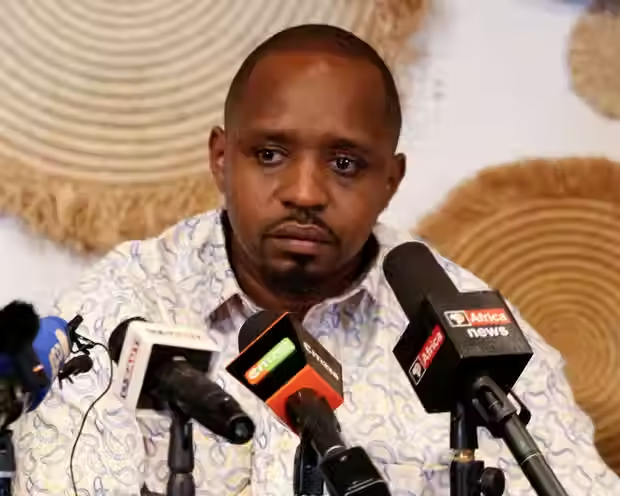Kenyan Activist Boniface Mwangi Arrested on "Terror" Charges: A Dangerous Escalation Against Dissent
- Next News
- Jul 21, 2025
- 2 min read

Nairobi, Kenya – In a development sparking widespread concern, prominent Kenyan human rights activist Boniface Mwangi was arrested on Sunday at his home near Nairobi. Mwangi now faces accusations of "facilitation of terrorist acts," according to investigators. This arrest comes just a day after the June 25 protests against President William Ruto's government, demonstrations that tragically resulted in the deaths of at least 19 people and were called to honor victims of police violence from a similar protest held last year.
Details of the Arrest and Allegations
Mwangi, a vocal critic of the government, is currently being held at a police station in the capital and is scheduled to appear in court on Monday. The Directorate of Criminal Investigations (DCI) in Kenya, via its official X (formerly Twitter) account, stated that the charges relate to his alleged involvement in organizing and facilitating the recent protests.
However, Mwangi vehemently denies these accusations, asserting in a social media post shared by his supporters: "I am not a terrorist." His detention has triggered a widespread wave of condemnation online, with the hashtag #FreeBonifaceMwangi quickly going viral across social media platforms.
According to the search warrant used by the police to raid Mwangi's home, which an ally reportedly shared with journalists, it accuses the activist of having paid "goons" to incite unrest during last month's protests. During the raid, investigators reported seizing two mobile phones, a laptop, and multiple notebooks from his home in Lukenya, east of the capital. From his office in Nairobi, they confiscated hard drives, two additional computers, two unused tear gas canisters, and a blank firearm cartridge. These items are being presented by authorities as evidence of his alleged involvement in acts intended to cause public disorder and fear.
Context of Protests and Government Repression
Since the inception of the protest movement last year, President William Ruto's administration has faced significant backlash and sharp criticism over a disturbing pattern of abductions and alleged police violence. Human rights groups estimate that over 100 people have been killed since the protests began, with demonstrations consistently met with harsh suppression by security forces.
This latest arrest of Boniface Mwangi, a well-known figure in the human rights community, is widely viewed as a further escalation in the government's attempts to quell dissent and crack down on activists and independent voices. Human rights organizations and civil society groups have broadly condemned the use of anti-terrorism laws against activists, arguing that such measures are a tactic to criminalize legitimate protest and silence critical voices.









Comments